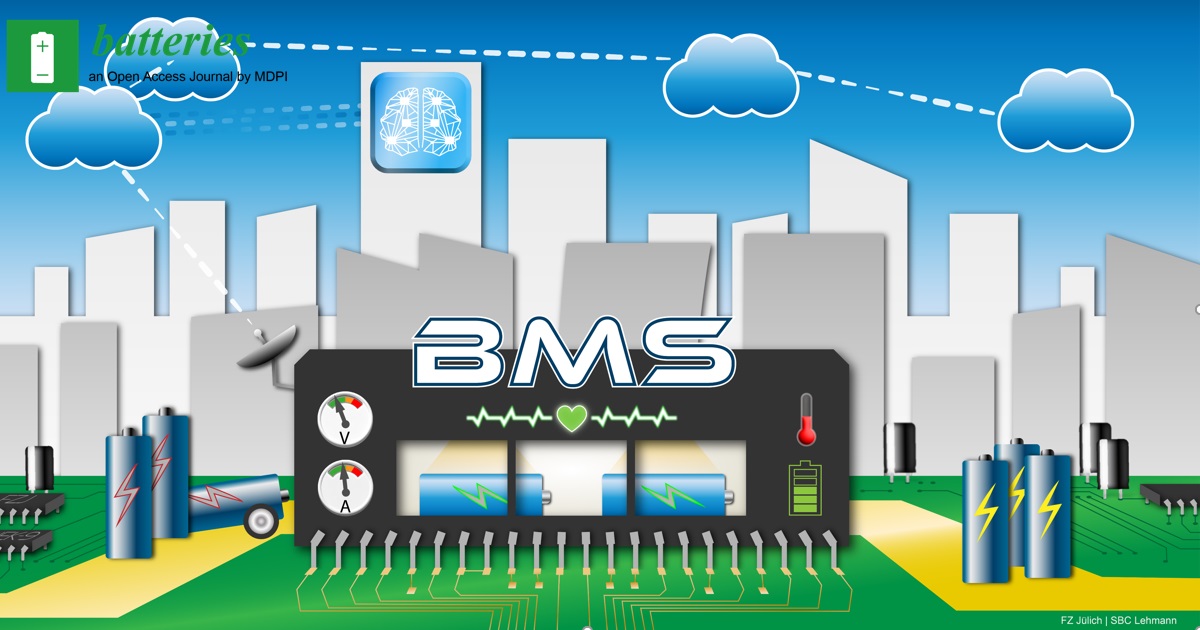- 4.8Impact Factor
- 6.6CiteScore
- 19 daysTime to First Decision
Advances in Battery Management Systems
This special issue belongs to the section “Battery Modelling, Simulation, Management and Application“.
Special Issue Information
Dear Colleagues,
In recent years, we have witnessed phenomenal growth in electrochemical battery technologies driven by the proliferation of Li-ion batteries in the e-mobility and renewable energy storage sectors. At present, we are witnessing beyond-Li-ion breakthroughs in the form of new cell chemistries and configurations, as exemplified by the Na-ion chemistry and anode-free configurations. For all chemistries and configurations, it holds that the successful implementation in battery-powered systems is dependent on the design of the battery management system (BMS), since this finally determines the performance of the system in its broadest sense. The BMS is, therefore, the key enabling component to assure the dependability of emerging battery technologies.
For this Special Issue, we seek contributions focusing on challenges, solutions and improvements to the BMS hardware and software. We aim to highlight recent innovative discoveries addressing battery safety, state-of-charge (SoC), state-of-health (SoH), state-of-power (SoP) estimation, thermal behavior, thermal runaway prediction and Li plating. Moreover, we are happy to receive contributions on the implementation of advanced measurements techniques/diagnostics, sensors and reference electrodes for BMS.
Topics of interest include, but are not limited to:
- State-of-charge (SoC) state-of-health (SoH) and state-of-power (SoP) estimation;
- Models for BMS;
- Battery diagnosis;
- Battery aging;
- Balancing techniques;
- Reference electrodes and sensors for BMS;
- Measurement techniques for BMS;
- Advanced BMS safety features;
- Thermal management systems;
- Artificial Intelligence in BMS;
- Cloud-connected BMS;
- Beyond-Lithium BMS.
Dr. Luc Raijmakers
Dr. Kudakwashe Chayambuka
Guest Editors
Manuscript Submission Information
Manuscripts should be submitted online at www.mdpi.com by registering and logging in to this website. Once you are registered, click here to go to the submission form. Manuscripts can be submitted until the deadline. All submissions that pass pre-check are peer-reviewed. Accepted papers will be published continuously in the journal (as soon as accepted) and will be listed together on the special issue website. Research articles, review articles as well as short communications are invited. For planned papers, a title and short abstract (about 250 words) can be sent to the Editorial Office for assessment.
Submitted manuscripts should not have been published previously, nor be under consideration for publication elsewhere (except conference proceedings papers). All manuscripts are thoroughly refereed through a single-blind peer-review process. A guide for authors and other relevant information for submission of manuscripts is available on the Instructions for Authors page. Batteries is an international peer-reviewed open access monthly journal published by MDPI.
Please visit the Instructions for Authors page before submitting a manuscript. The Article Processing Charge (APC) for publication in this open access journal is 2700 CHF (Swiss Francs). Submitted papers should be well formatted and use good English. Authors may use MDPI's English editing service prior to publication or during author revisions.
Keywords
- BMS
- battery sensors
- safe battery pack design
- battery safety
- plating detection
- battery pack balancing circuits
- thermal runaway detection
- battery models
- reference electrodes
- thermal management

Benefits of Publishing in a Special Issue
- Ease of navigation: Grouping papers by topic helps scholars navigate broad scope journals more efficiently.
- Greater discoverability: Special Issues support the reach and impact of scientific research. Articles in Special Issues are more discoverable and cited more frequently.
- Expansion of research network: Special Issues facilitate connections among authors, fostering scientific collaborations.
- External promotion: Articles in Special Issues are often promoted through the journal's social media, increasing their visibility.
- e-Book format: Special Issues with more than 10 articles can be published as dedicated e-books, ensuring wide and rapid dissemination.

